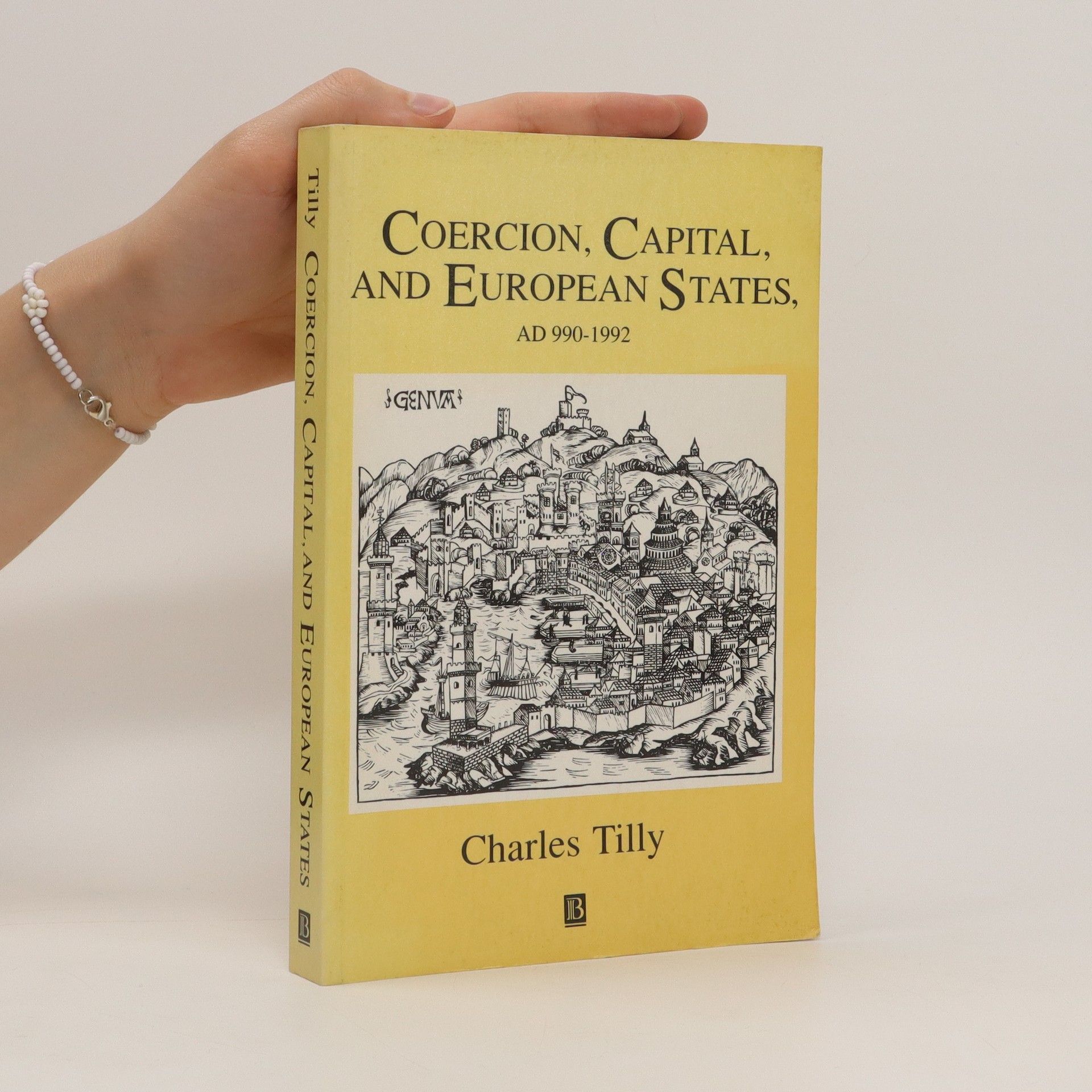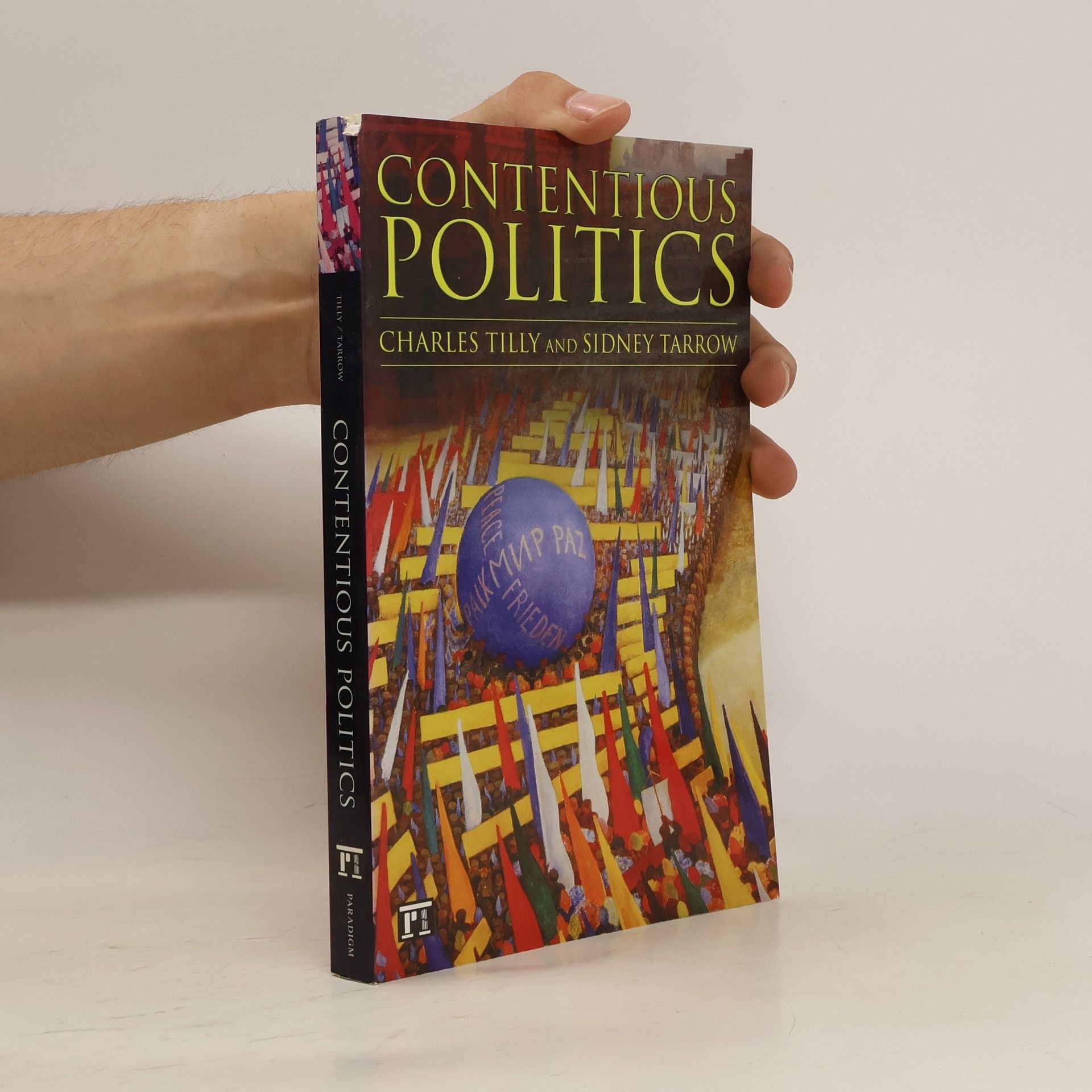Why?
Was passiert, wenn Leute Gründe angeben... und warum
Dieser Soziologe war eine Schlüsselfigur bei der Etablierung und Institutionalisierung von Teilbereichen wie der historischen Soziologie, der Sozialwissenschaftsgeschichte, sozialen Bewegungen und kontroverser Politik innerhalb der zeitgenössischen Sozialwissenschaft. Seine produktive Karriere umfasste die Verfassung von über fünfzig Büchern und rund siebenhundert akademischen Artikeln. Mit seinem umfangreichen Werk prägte er maßgeblich das Verständnis sozialer Prozesse und historischen Wandels.







Was passiert, wenn Leute Gründe angeben... und warum
Revolutionen sind die „Lokomotiven“ (Karl Marx) der Geschichte. Charles Tilly, einer der führenden Revolutionshistoriker unserer Zeit, schreibt hier für „Europa bauen“ eine Geschichte der europäischen Revolutionen von der frühen Neuzeit bis zur Gegenwart. Englands glorreiche Revolution von 1688, die Französische Revolution von 1789 und die russische Oktoberrevolution von 1917 stehen im Mittelpunkt des Buches, aber auch die Umwälzungen der jüngsten Vergangenheit in Mittel- und Osteuropa werden in die Darstellung mit einbezogen.
Focusing on the processes of democratization and de-democratization, this 2005 work offers a crucial foundation for understanding the complexities of political transitions. It delves into the factors influencing these shifts, providing insights into historical contexts and contemporary implications. The book serves as a vital resource for scholars and students interested in political science and the dynamics of governance.
Revolutions, social movements, religious and ethnic conflict, nationalism and civil rights, and transnational these forms of contentious politics combine in Charles Tilly's and Sidney Tarrow's Contentious Politics . The book presents a set of analytical tools and procedures for study, comparison, and explanation of these very different sorts of contention. Drawing on many historical and contemporary cases, the book shows that similar principles describe and explain a wide variety of struggles as well as many more routine forms of politics. Tilly and Tarrow have written the book to introduce readers to an exciting new program of political and sociological analysis. To view Power Point slides of the last undergraduate course of Charles Tilly (with Ernesto Castaneda) in Spring 2007, which are related to his Paradigm book with Sidney Tarrow, Contentious Politics , please click here.
Monograph tracing the historical evolution of strike and unofficial strike activities in France from 1830 to 1968 - covers trade unionization, the impact of industrialization and urbanization, etc. Bibliography pp. 401 to 412, graphs, maps, references and statistical tables.
In this pathbreaking work, now available in paperback, Charles Tilly challenges all previous formulations of state development in Europe. Specifically, Tilly charges that most available explanations fail because they do not account for the great variety of kinds of states which were viable at different stages of European history, and because they assume a unilinear path of state development resolving in today's national state.
Focusing on collective struggles, this book provides an in-depth analysis of social movements in Great Britain from 1758 to 1834. It utilizes extensive evidence to explore the dynamics and impact of these movements, offering insights into the historical context and the evolution of popular resistance during this transformative period.
The book explores the significant growth in the study of social movements, revolutions, and democratization over the last twenty years. It delves into the key theories, methodologies, and case studies that have emerged in this field, highlighting how these phenomena shape societies and influence political change. By examining various movements and their impact on democracy, the author provides insights into the dynamics of collective action and the quest for social justice.
Exploring the roots of collective violence, this book examines diverse phenomena such as soccer hooliganism and September 11 through a historical lens. It highlights how social interactions lead to physical harm, driven by coordination among perpetrators. Charles Tilly posits that while collective violence is complex and unpredictable, it often stems from similar underlying causes. By identifying these factors, the work aims to provide insights into mitigating violence and fostering democratic societies with minimal harm. Tilly's extensive academic background enriches the analysis.
The first textbook to present world history via social history, drawing on social science methods and research. This interdisciplinary, comprehensive, and comparative textbook is authored by distinguished scholars and experienced teachers, and offers expert scholarship on global history that is ideal for undergraduate students. Volume 2 takes us from the early modern period to speculation about the world in 2050, visiting diverse civilizations, nation-states, ecologies, and people along the journey through time and place. The book pays particular attention to the ways in which ordinary people lived through the great changes of their times, and how everyday experience connects to great political events and the commercial exchanges of an interconnected world. With 75 maps, 65 illustrations, timelines, boxes, and primary source extracts, the book enables students to use historical material and social science methodologies to analyze the events of the past, present, and future.